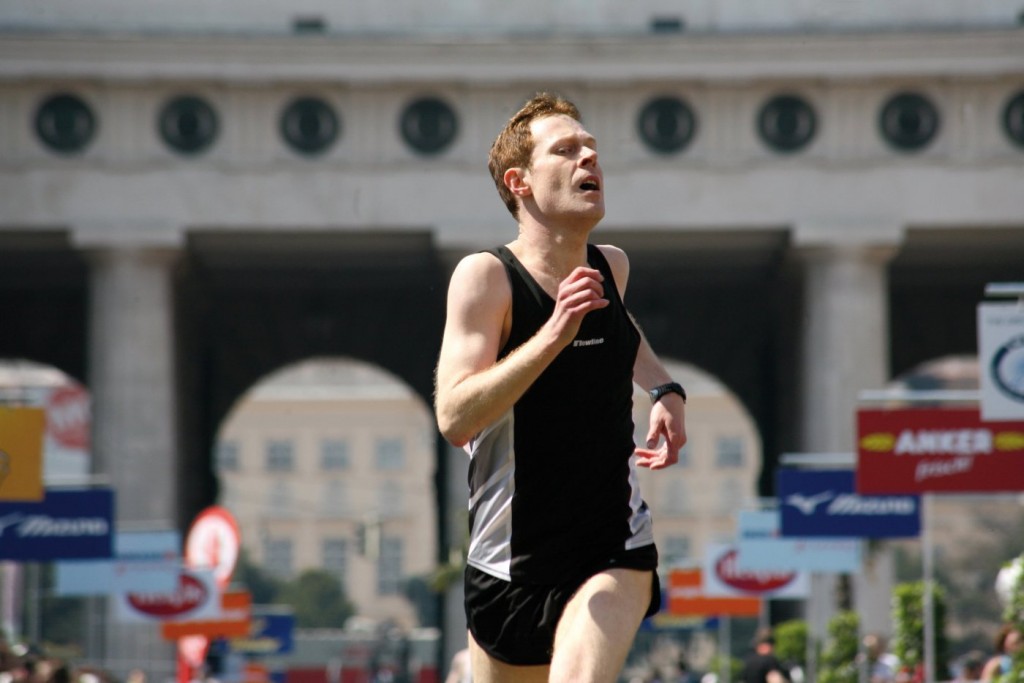
From the very beginning, it seems clear that the new Austrian film ‘The Robber’ should have in fact been called ‘The Runner’. Its main character is a man named Johannes Rettenberger, who we first meet in a prison yard, running. When he is told to return to his cell, he immediately gets on to a treadmill, and resumes running. Mentally speaking, he’s running from boredom, from society and towards death. More concretely, he’s running in various marathons. And most interestingly, he’s running from one of the numerous bank robberies he committed. This eccentric story is based on real events that made national headlines in Austria in the 1980’s, where Johann Kastenberger (it is unclear why the name was changed for the film) did exactly that: Set national records for marathon running, while robbing several banks on his days off.
In making a film of this story, an obvious course to take would be to make a heavily psychological existential film. Director Benjamin Heisenberg decided against this, however, and instead took the route of a direct and unadorned thriller, to a terrific result. Aside from one opaque sentence (“What I do has nothing to do with what you call life”), Heisenberg avoids any kind of speechifying on the meaning of Johannes’ state or his choices, no explanation is served up to the audience. Heisenberg lets action speak for itself, and does a good job of it. Watching a man run may not sound that thrilling, but Heisenberg and his main actor Andreas Lust (the guilt-ridden policeman from last year’s excellent ‘Revanche’) make these sequences appealing by not over-thinking it, a quality that keeps this film from becoming bloated. These running sequences are straightforward and handsomely shot. The same goes for the chase sequences- there is a major chase after Johannes daringly robs one bank immediately after robbing another bank two blocks away, the police answering the first call speeding past him as he sticks up his new target. Record-breaking long-distance runner that he is, Johannes out runs the police through buildings, fields, forests…the chase is as thrilling as any in the ‘Bourne’ films, scored entirely with percussion, which simply yet incredibly effectively imitate Johannes’ pulsating heartbeat (a motif that will be repeated to great effect in the film’s final moments).
Johannes is also shown to be a very effective carjacker, and clearly does enjoy his exploits…but he seems entirely disinterested in the money or the cars. He’s in it for the thrill of out-running and out-smarting everyone else. As these films require, there is a love interest (although considering its toned down nature, the affair would be more adequately described as loneliness-sharing), but even that develops without too much hysteria. Lust opens up slightly in the scenes with said love-interest (the only scenes where he stays somewhat put), but even then he doesn’t give much away. Lust plays Johannes as a person who is defined by one thing only, and is utterly impenetrable outside of that thing (he smiles once, and it doesn’t end too well). His humanity comes through in the final extended chase sequence, which -with its mountain top race to a border brought to mind the superb Kirk Douglas film ‘Lonely are the Brave’- finally challenges Johannes’ abilities, with the police searching for him like a plague of locusts, the massive hunt devouring his possibilities for escape.
By avoiding the pitfalls of misplaced emphasis or ponderous existentialisms -quite possibly the reason that the film is not titled ‘The Runner’, which would add allegorical weight they wished to avoid- Heisenberg and Lust have concocted a small and admirably unassuming thriller. In its own quiet way, ‘The Robber’ is in fact an exciting and beautifully crafted film.
SHLOMO PORATH





